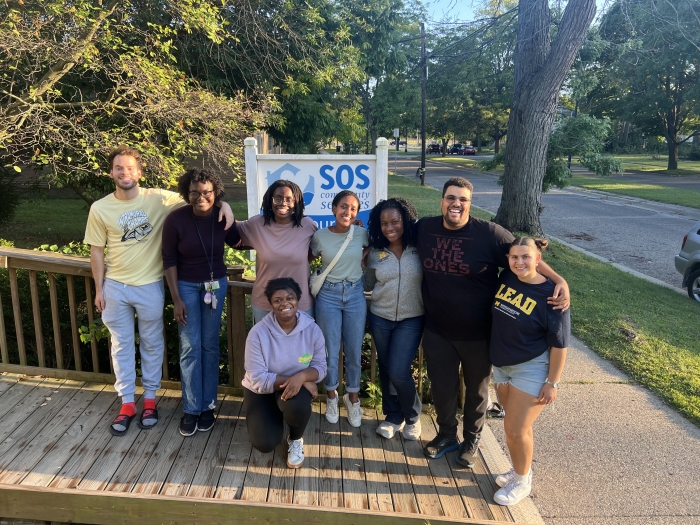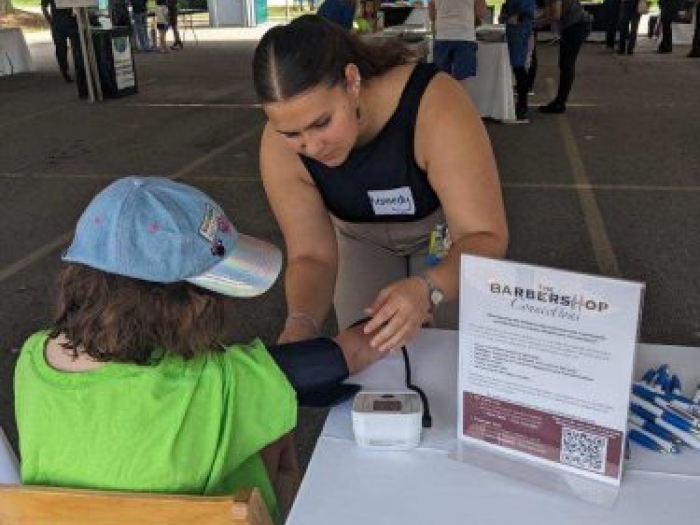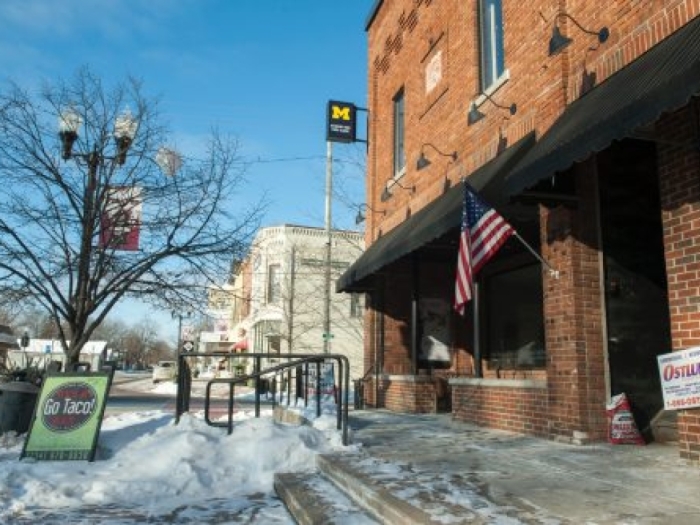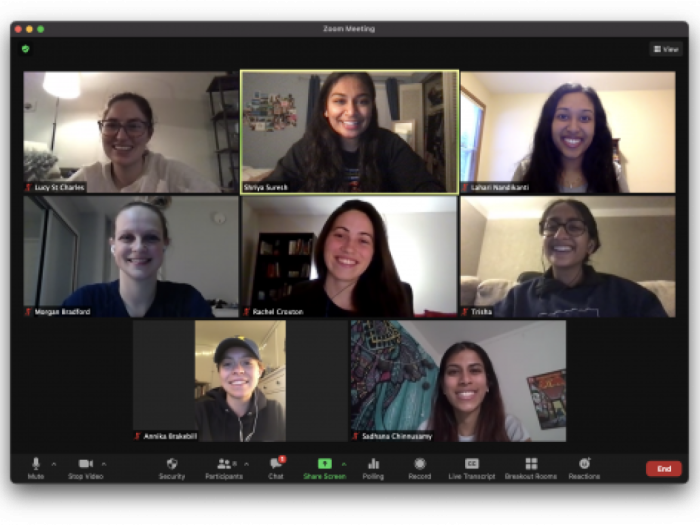7:05 PM
Author |
On the night of March 12, 2020, Governor Whitmer announced Michigan K-12 schools would close for the next three weeks due to the COVID-19 outbreak. At this time, I was serving as a FoodCorps Service Member during a year off before medical school, and I was teaching pre-k through elementary aged students nutrition, cooking and gardening lessons. I had just led a lesson on the importance of handwashing to two of my preschool classes, which included story time, a handwashing dance by UNICEF, and practicing washing together while singing Happy Birthday. Little did I know this would be the last time I would see my students for a long time and, looking back, I cannot think of a more fitting last lesson.
These are some pictures from my final lesson before the school closures. Students learned the importance of handwashing and practiced good handwashing hygiene together!
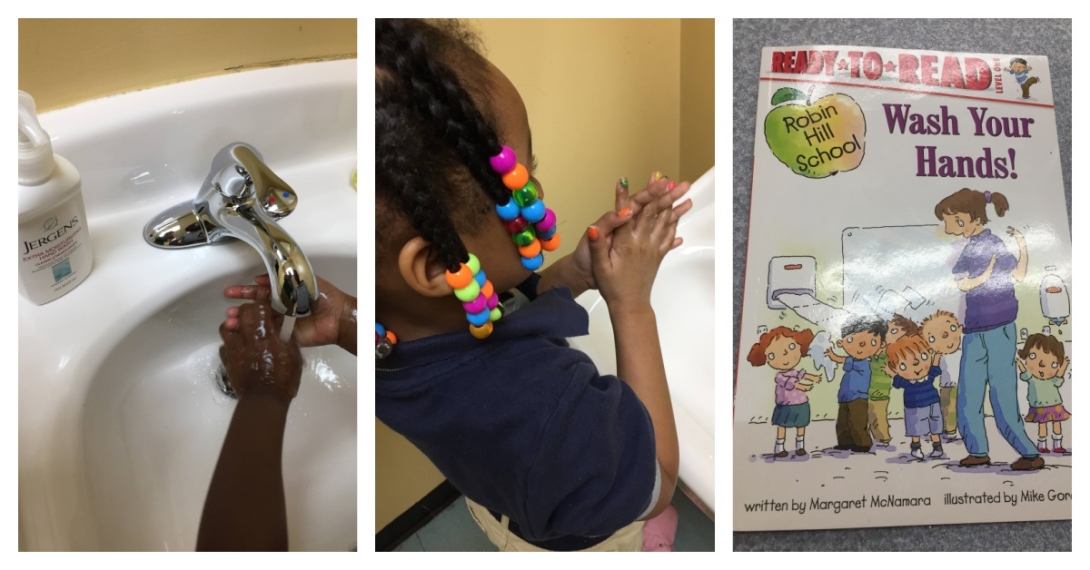
Soon reality began to sink in: schools would remain closed for the rest of the school year. This would affect my students' education, social lives, safety and even nutrition. Many of my students relied on the school for their breakfast and lunch each day, and 20 percent of Detroit Public Schools students even had dinner at school. School closures as a result of the pandemic would jeopardize both my students' access to meals as well as education, once again disproportionately affecting underserved minority populations.
With these dramatic changes in my students' lives and with more than three months of the service term remaining, I needed to brainstorm creative ways to continue teaching and serving my students and their community.
At first, helping with breakfast and lunch bag packing and distribution was the most logical way to continue serving. Admittedly, this was scary, especially at the start of a global pandemic when there were still many unknowns about the virus, rate of spread, necessary PPE, etc. Each day during distribution, I was interfacing with numerous lunch services staff to pack the breakfast and lunch bags and then countless more families during distribution. While my thin food safety mask and gloves didn't seem safe, I knew I was in the right place doing the right thing. We passed out meals to entire families for half a week at a time, and the appreciation on the parents' faces is what kept us going!
Then in April, as the pandemic heightened and packaging sites closed, I transitioned to working in my school's garden. Earlier during my service term, I had participated in Keep Growing Detroit's Urban Roots Program, where I learned how to create a design for my school's up-and-coming garden and how to mobilize the necessary resources to literally bring the garden to life. Upon my completion of the Urban Roots Program, my school was enrolled in the Garden Resource Program and began receiving free seeds and transplants every season. That spring, I picked up many transplants including bok choi, collard greens, dinosaur kale, winter boar kale, broccoli and mixed lettuce. Using the skills I learned over my service term, I grew all the transplants into fresh produce and donated it all to Detroit Rescue Mission Ministries, a homeless shelter and soup kitchen in Detroit.
In addition to growing produce, I also used my garden space to create virtual lessons so that my students could continue learning from home. Searching for an effective medium to share my lesson content, I created a Youtube channel: Miss Sanaya's Nutrition Lessons. For someone who has always struggled to tap into my creativity, creating Youtube videos proved to be a challenge. Additionally, I had never made professional video content before and creating videos ALL alone due to social distancing constraints added another layer of difficulty. However, knowing that my students and families could benefit from this content really pushed me to brainstorm and get to work filming!
Quickly, my garden became my safe haven. I could spend hours working in a safe and peaceful outdoor space and know that despite the limitations of the pandemic, I was giving back to my community in my own way. Gardening was the perfect way to both remain active and fight back against the twin pandemics of COVID-19 and hunger in Detroit. Read about my tips for first time gardeners here (although I'm no expert!): Tips to Grow Your Own Food From an Expert Gardener.
When I started at the University of Michigan Medical School in the summer of 2020, after completing my term with FoodCorps, I knew I wanted to continue serving the kiddos of Detroit. When our incoming M1 class wanted to fundraise for a Black-led nonprofit in light of George Floyd's murder, I quickly pitched Auntie Na's Village. Auntie Na has been rehabilitating her neighborhood, on the corner of Yellowstone and Elmurhst on the west side of Detroit, for years while simultaneously fighting racism. She has created a safe space for kids to eat, play, learn and grow. However, during the pandemic, her neighborhood and many others in Detroit were disproportionately affected. During this time, the Village spent the majority of their funds creating and delivering food packages to families in need. Although Auntie Na had dreamt of building a new play structure for the kids to play outdoors safely, she no longer had the means.
In the spirit of supporting the Black community of Detroit, I led our class to raise $15,000 to build this new play structure. In a community where parks, schools and other vital services have been defunded, our class was able to take a step towards tackling health disparities and social injustice by fostering a healthy and safe space for the children of Auntie Na's Village to play.
As an aspiring health care professional, I believe it is my duty to uplift communities around me by advocating for those whose voices are silenced. I plan on continuing to give back to the Detroit community through social justice-driven service work throughout my time at Michigan.
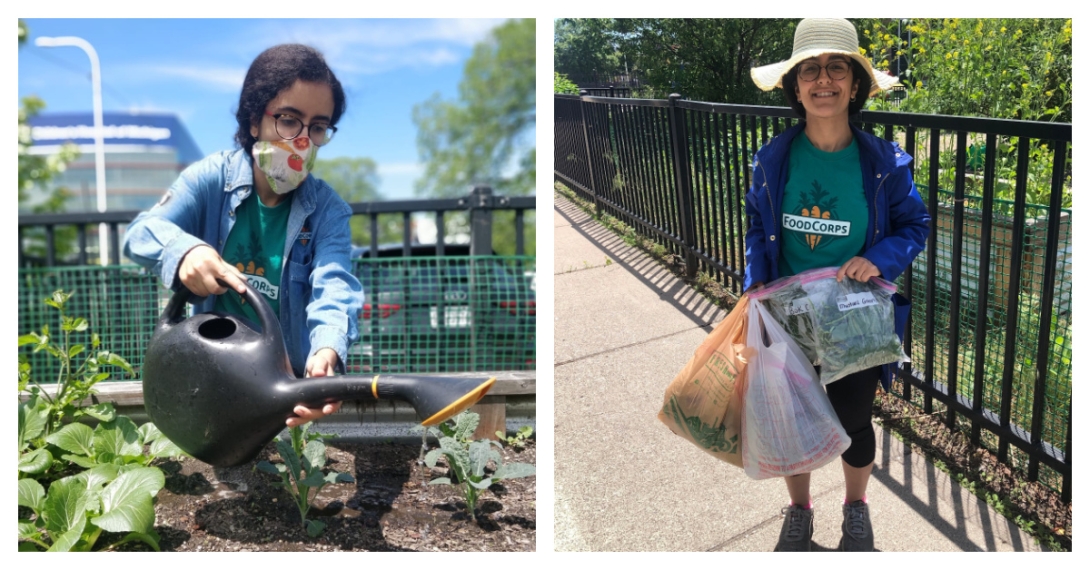
University of Michigan Medical School
